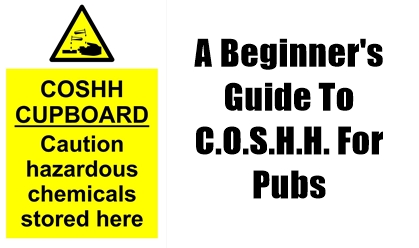COSHH (Control Of Substances Hazardous to Health) is the law that requires employers to control substances that are hazardous to health. You can prevent or reduce yours and your staff’s exposure to hazardous substances by:
- finding out what the health hazards are
- deciding how to prevent harm to health (carrying out a risk assessment)
- providing control measures to reduce harm to health
- making sure they are used
- keeping all control measures in good working order
- providing information, instruction and training for employees and others
- providing monitoring and health surveillance in appropriate cases
- planning for emergencies
Most businesses use substances, or products that are mixtures of substances. Some processes create substances. These could cause harm to employees, contractors and other people.
Sometimes substances are easily recognised as harmful. Common substances such as paint, bleach or dust from natural materials may also be harmful.
What is a ‘substance hazardous to health’?
COSHH covers
COSHH covers substances that are hazardous to health. Substances can take many forms and include:
- chemicals
- products containing chemicals
- fumes
- dusts
- vapours
- mists
- nanotechnology (admittedly not likely in pubs)
- gases and asphyxiating gases and
- biological agents
COSHH does not cover
- lead, asbestos or radioactive substances because these have their own specific regulations.
What you need to do
Before you start your COSHH assessment, you need to:
Think about
- What do you do that involves hazardous substances?
- How can these cause harm?
- How can you reduce the risk of harm occurring?
Always try to prevent exposure at source. For example:
- Can you avoid using a hazardous substance or use a safer process – preventing exposure, eg using water-based rather than solvent-based products, applying by brush rather than spraying?
- Can you substitute it for something safer – for example swap an irritant cleaning product for something milder, or using a vacuum cleaner rather than a brush? (see my separate article on Green and Eco-Cleaning)
- Can you use a safer form, can you use a solid rather than liquid to avoid splashes or a waxy solid instead of a dry powder to avoid dust?
If you can’t prevent exposure, you need to control it adequately by applying the principles of good control practice. Control is adequate when the risk of harm is ‘as low as is reasonably practicable’.
This means:
- All control measures are in good working order
- Exposures are below the Workplace Exposure Limit, where one exists
